This week’s Fashion Inspired by Art features some cozy looks inspired by iconic Greek sculptures. Keep on reading for three outfits to kick-start this autumn season!
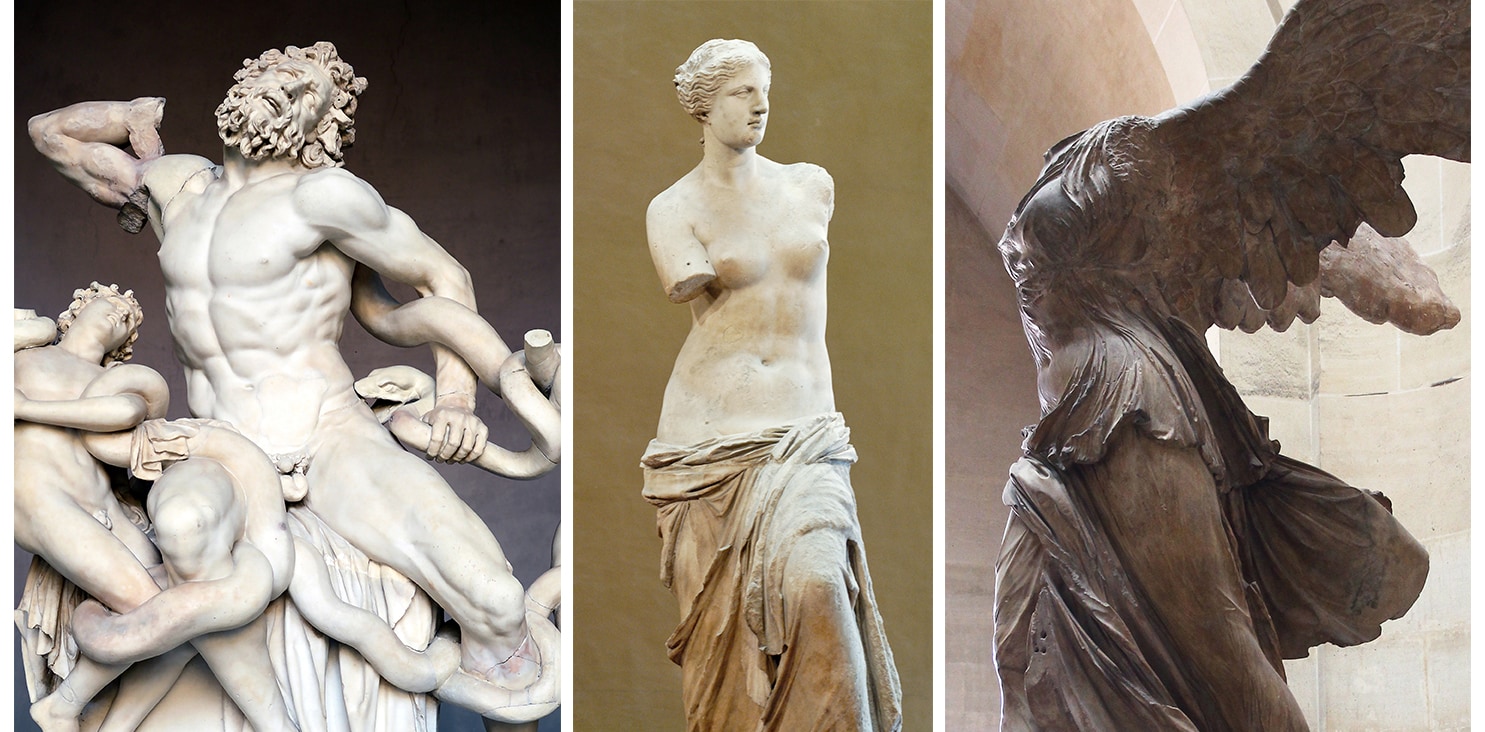
Table of Contents
About Hellenistic Art
Art historians loosely constrain the Hellenistic time period from 323-30 BCE. The art style, following the famous Classical era of Greek art, was a dramatic step in the direction of realism.
Unlike Classical styles of art (dating roughly from 480-320 BCE), where sculptors rendered demure forms to the height of perfection and canon of beauty, Hellenistic art featured the everyday person. Though several Hellenistic sculptures still maintained idealized bodies, themes of old age and disheveled appearances appeared more frequently than in the Classical era. Common subject matter involved Greek deities and everyday townspeople.
Look #1: Nike of Samothrace
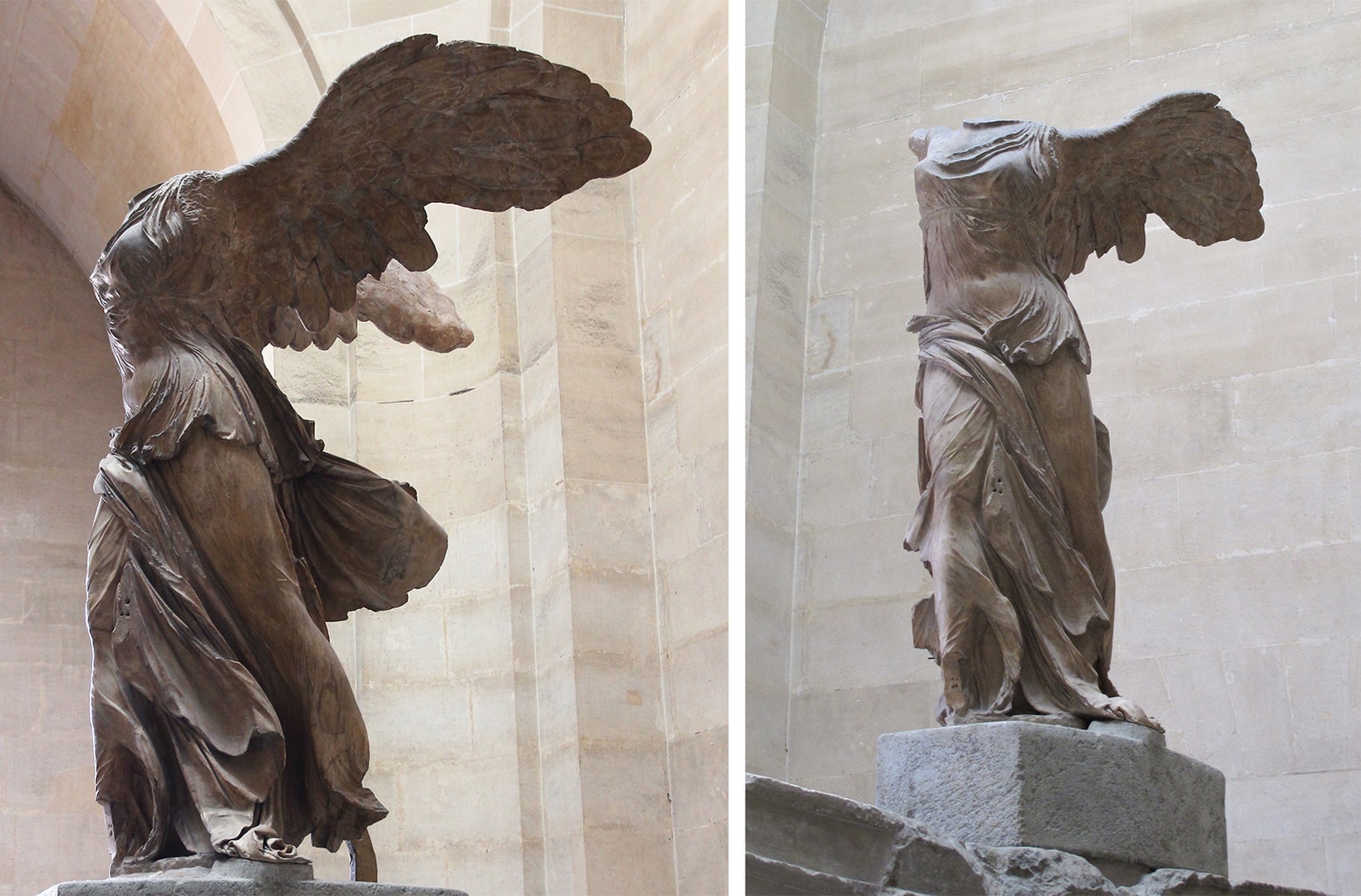

Products: Dress (left), Dress (right), Coat, Flats, Earrings, Nail Polish
An unknown artist sculpted Nike of Samothrace (or Winged Victory of Samothrace) between roughly 200-190 BC. The photos above are of the original, a headless and armless marble statue of the goddess Nike. Her form was possibly meant to sit at the prow of a ship, wings outstretched majestically, conveying a sense of triumph. With the effect of wet drapery, Nike’s chiton billows around her legs haphazardly.
For this first outfit, I found several dresses that mimic the flow of Nike’s garment. For this ensemble as well as the rest of the outfits below, I stuck to a neutral-to-grey color palette, keeping the statue’s marble exterior in mind. Whimsical winged accessories, like these jeweled earrings, give the simple outfit a point of interest.
Look #2: Laocoön and His Sons
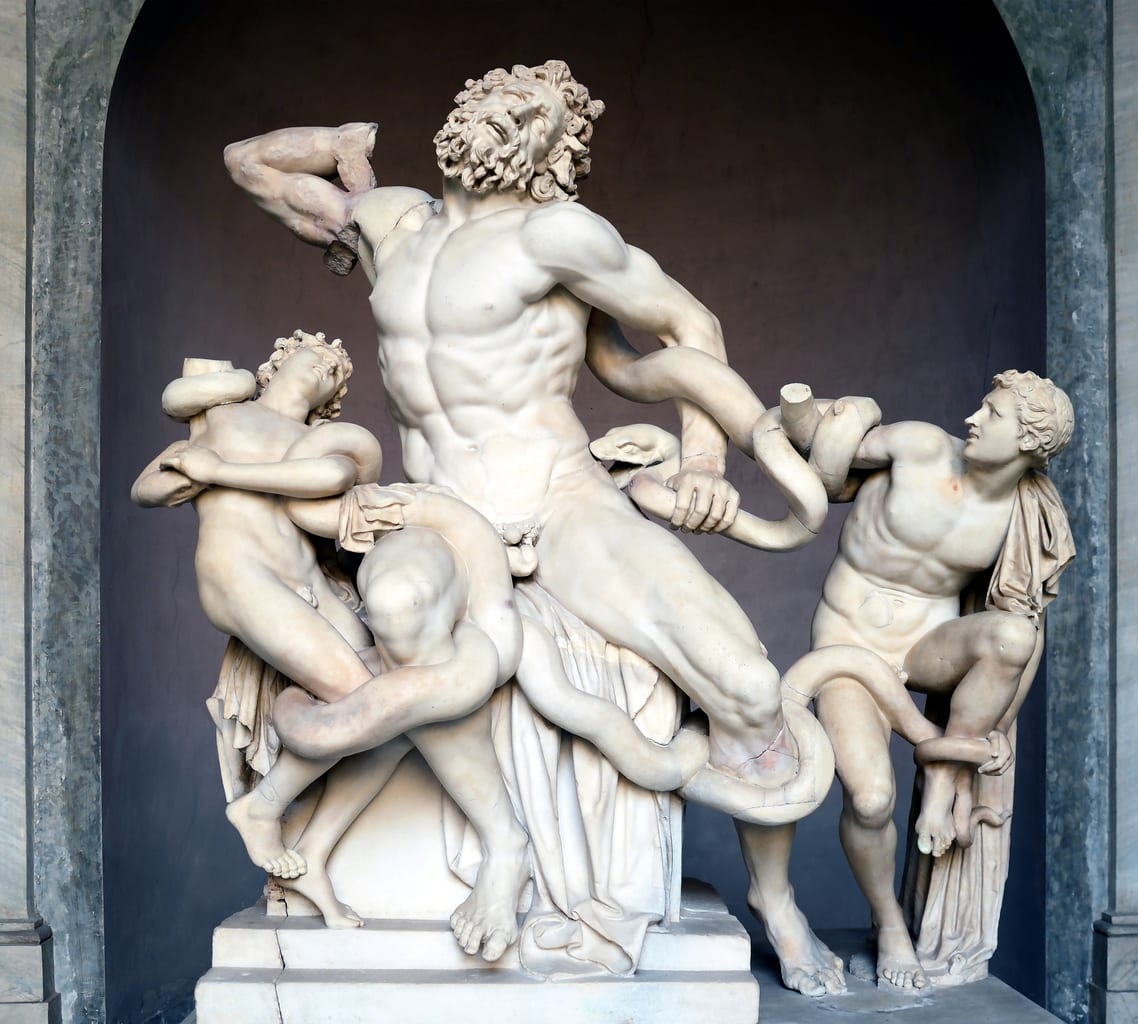
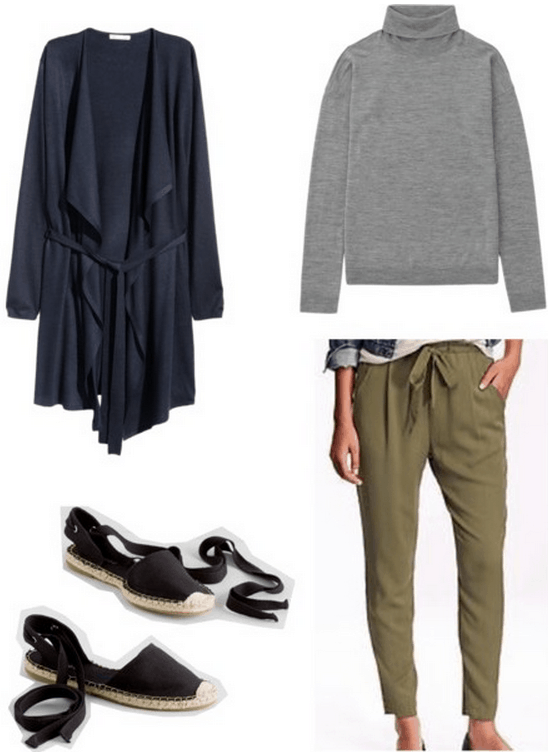
Products: Coat, Turtleneck, Pants, Sandals
This next sculpture, Laocoön and His Sons, is a complex composition of the Trojan priest Laocoön entangled with his sons at the doing of sea serpents. You can read more about the thrilling myth behind the sculpture here.
The artists Hagesander, Athenodoros, and Polydorus probably sculpted the work, likely between 42-20 BCE. Art historians are unsure if the official version, located in the Vatican, is the original. Many speculate that it is a copy of a Greek bronze, as was common with marble statues back in the era.
In this second outfit, I took inspiration from the entwining of the serpent with the other subjects of the sculpture. This wrap jacket is loose enough to pair with a casual outfit, but can be transitioned into something more upscale at the tie of a belt. With the fuzzy collar of a turtleneck sweater peeking out of the jacket and a pair of comfy olive pants, this outfit embodies fall.
Look #3: Venus de Milo
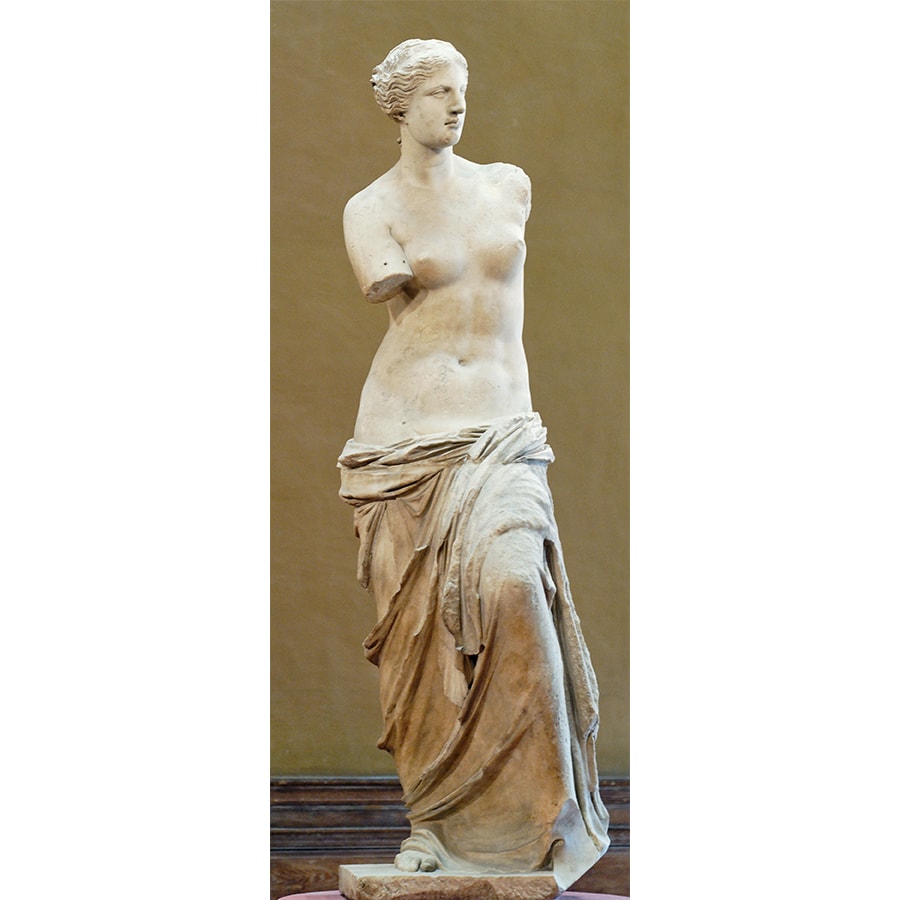
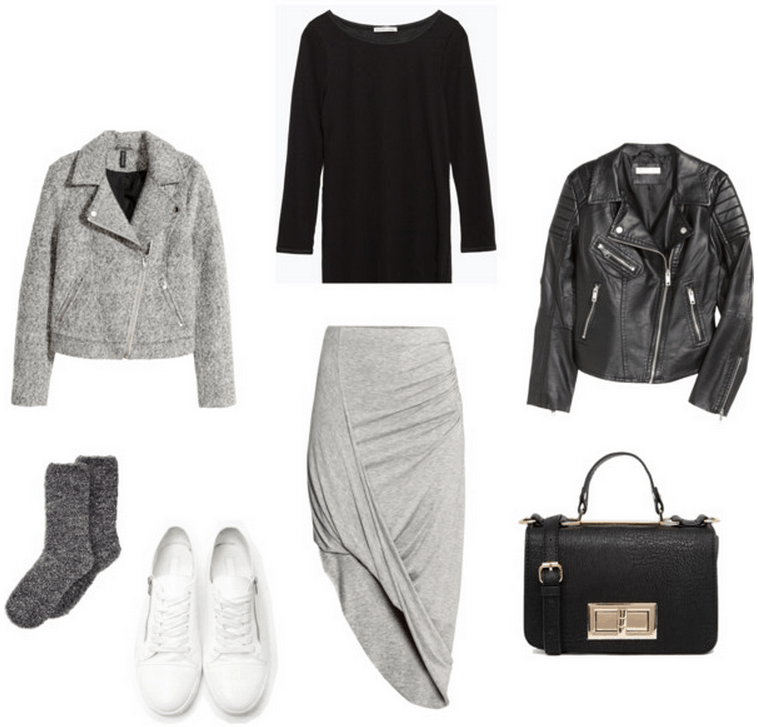
Products: Grey Jacket, Black Jacket, Long Sleeve Top, Wrap Skirt, Socks, Shoes, Bag
Venus de Milo is one of the most famous works of ancient Greek sculpture, iconic for her missing arms. Alexandros of Antioch was the sculpture’s probable artist; records date the piece sometime between 130-100 BCE. The subject, supposedly Aphrodite, or Venus (her Roman equivalent), may seem created in the Classical style, but the S-curve of her body and the wet drapery of her garment make the work markedly Hellenistic.
This last outfit is the most edgy of the three. In the sculpture, Venus is about to slip off her chiton to prepare her bath. The draping effect mirrors this year’s trend of wrap skirts, like the one pictured above. I paired the skirt with a classic black long sleeve tee to layer nicely underneath a structured jacket. The white sneakers give the whole look a street-style vibe.
Final Thoughts
The Hellenistic time period marked an era of artwork that conveyed never-before-seen emotion. From its dramatic compositions to the iconic wet drapery, Hellenism was very distinct in the timeline of art history. Incorporating aspects of the art style into your fall style is simply a matter of draped fabrics and complex patterns.
What do you think?
Do you love Hellenistic art as much as I do? What is your favorite era of Greek art? What would you like to see next in this Fashion Inspired by Art series? Let me know in the comments below!

I love the minimal palette and sleek silhouettes! I’d feel like a statue in these (in a good way, haha — like a work of art)!
That makes me so happy! Embrace your regal statue potential 🙂